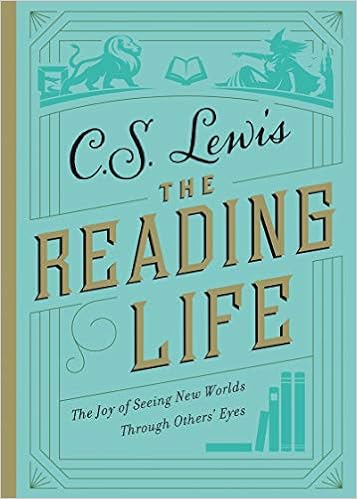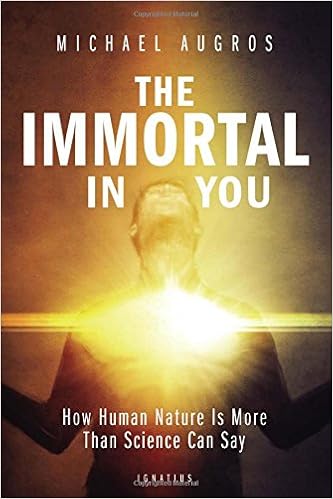Recommendations can be a wonderful thing. When a friend links to a book on social media, 9/10 times I will click that link and read more about it. And 9/10 times, that link will link me to other books in which I am at least as interested. I end up with a cart loaded with goodies that I can’t afford (at least, not all at once) and end up “saving for later” until I have several hundred “saved for later” books that I never remember to get back to. But then again, that’s better than buying all the books and never reading any of them, right?
Well, here are a few that made it into my cart this morning. If you read them, let me know what you think! I’ll do the same.

by Nancy Carpentier Brown (Author),
Dale Ahlquist (Foreword)
This is a love story. But it is also a detective story. And best of all, it is a true story, told here for the the first time. Gilbert Keith Chesterton was a romantic, a writer of detective tales, and a teller of the truth. His own story and the stories he told are becoming better and better known. But what has remained unknown is the story of the most important person in his life: his wife Frances.
Nancy Carpentier Brown has done incredible detective work to uncover the mystery of Frances, tracking a figure who managed to leave very few traces of herself.
It is quite likely that as more is discovered about Frances, more biographies will be written of her, and they will be even more complete. But they will all come back to this one.
— Dale Ahlquist, from the Foreword
The revered teacher and bestselling author reflects on the power, importance, and joy of a life dedicated to reading books in this delightful collection drawn from his wide body of writings.
More than fifty years after his death, revered intellectual and teacher C. S. Lewis continues to speak to readers, thanks not only to his intellectual insights on Christianity but also his wondrous creative works and deep reflections on the literature that influenced his life. Beloved for his instructive novels including The Screwtape Letters, The Great Divorce, and The Chronicles of Narnia as well as his philosophical books that explored theology and Christian life, Lewis was a life-long writer and book lover.
Cultivated from his many essays, articles, and letters, as well as his classic works, The Reading Life provides guidance and reflections on the love and enjoyment of books. Engaging and enlightening, this well-rounded collection includes Lewis’ reflections on science fiction, why children’s literature is for readers of all ages, and why we should read two old books for every new one.
A window into the thoughts of one of the greatest public intellectuals of our time, this collection reveals not only why Lewis loved the written word, but what it means to learn through literature from one of our wisest and most enduring teachers.
Living the Good Life presents a brief introduction to virtue and vice, self-control and weakness, misery and happiness. The book contrasts the thought of Aquinas with popular views, such as moral relativism, values clarification, utilitarianism, Kantian deontology, and situation ethics. Following the Socratic dictum “know thyself,” Steven J. Jensen investigates the interior workings of the human mind, revealing the interplay of reason, will, and emotions. According to Aquinas, in a healthy ethical life, reason guides the emotions and will to the true human good. In an unhealthy life, emotional impulses distort the vision of reason, entrapping one in futile pursuits. In the human struggle to gain self-mastery, a person must overcome the capricious desires that enslave him to false goods.
Jensen ably guides readers through Aquinas’s philosophy and explains the distinction between the moral and intellectual virtues. The moral virtues train our various desires toward the true good, helping us discard our misguided cravings and teaching us to enjoy what is truly worth pursuing. The virtue of justice directs our hearts to the good of others, freeing us from egoism in order to seek a good shared with others. The intellectual virtues train the mind toward the truth, so that we can find fulfillment in human understanding. Most important, the virtue of prudence directs our deliberations to discover the true path of
life.
Intended as a text for students, beginners of philosophy will gain access to a key aspect of Aquinas’s thought, namely, that true happiness is realized not in the animal life of passion and greed but only in the reasonable pursuit of human goods, in which we find true peace and rest from the distractions of this world.
The Human Person presents a brief introduction to the human mind, the soul, immortality, and free will. While delving into the thought of Thomas Aquinas, it addresses contemporary topics, such as skepticism, mechanism, animal language research, and determinism. Steven J. Jensen probes the primal questions of human nature. Are human beings free or determined? Is the capacity to reason distinctive to human beings or do animals also have some share of reason? Have animals really been taught to use language?
The Human Person touches on topics that bear upon the very fabric of the universe. Are human beings merely well-ordered collections of chemicals or do they have a soul that gives them life and understanding? Is there any element in human beings that survives death? Can human minds get in touch with the objective world or just forever dwell in the domain of their subjective experiences? The book closes by considering the most fundamental question of all: are human beings merely cosmic accidents with no purpose or is there some meaning to human life?
In this book, beginners of philosophy will learn the wonders of their own nature by studying Aquinas’s thought on the human person.
Many scientists and philosophers believe that you are no more than a machine. By their account there is no afterlife and you are no better than any other kind of animal. The existence of mankind, according to such thinkers, is purely the outcome of chance events. There never was any tendency, natural or supernatural, to produce life and the human mind. The universe is hostile or indifferent toward you, and you occupy no special place within it.
At the heart of this story of mankind lies not science but a rarely expressed philosophical assumption that modern science, at least in principle, tells all there is to know about you and the world. With his unique blend of cogency, clarity, and charm, philosopher Michael Augros hauls that assumption out into the light and demolishes it. The Immortal in Youdemonstrates how an astute use of common sense and a study of common human experience reveal that there is more to you–much more–than science could possibly say.
From the author of Who Designed the Designer?, this modern response to the ancient exhortation “Know thyself” delivers a wealth of fresh, powerful, and uplifting ideas about what it is to be human, which will engage thoughtful readers regardless of their beliefs.








